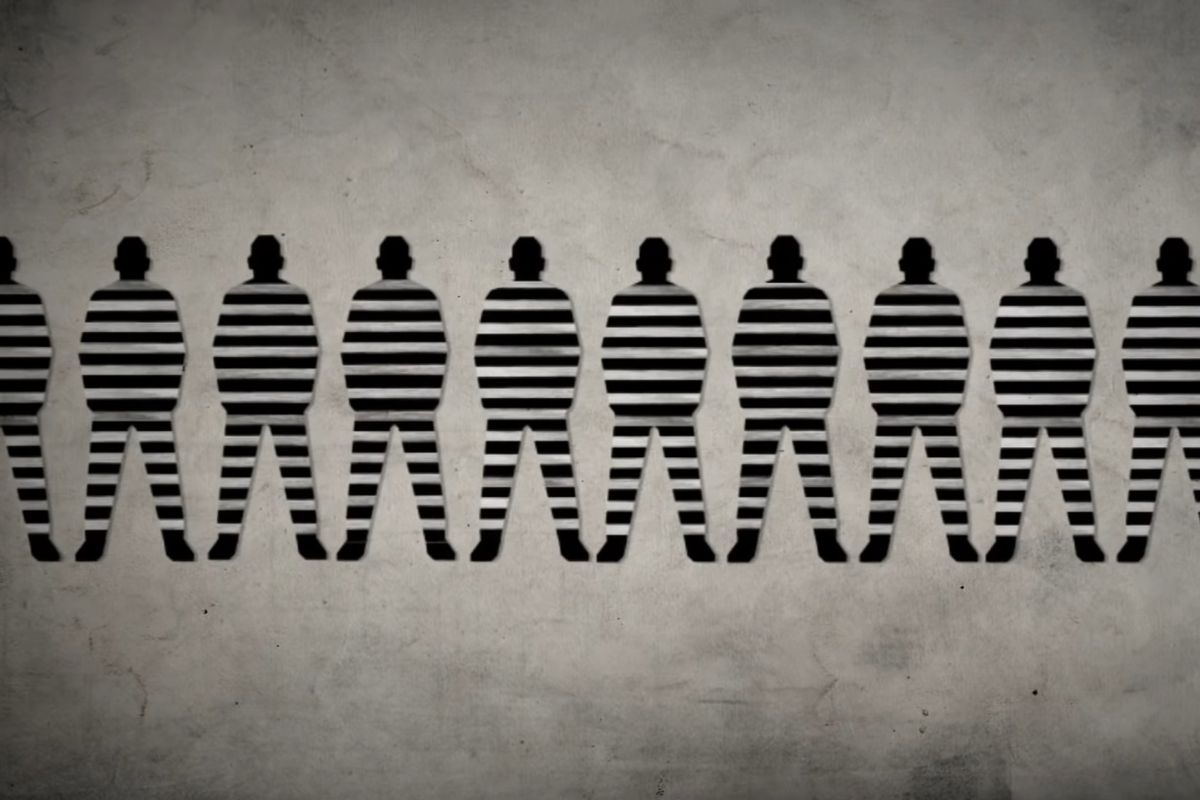New York Could Become the 5th State To Actually Ban Slavery

Yes, now, in the 2023–2024 New York Legislative Session, Assemblyman Harvey Epstein has introduced A3412 into committee, a bill that could fully abolish slavery in the state. After the 2022 election, four states (Alabama, Oregon, Tennessee, and Vermont) formally banned slavery—on paper—within their borders. While the 13th Amendment abolished slavery across the U.S. (not President Lincoln’s Emancipation Proclamation), there’s a short carveout “except as a punishment for crime whereof the party shall have been duly convicted.”
This intentionally led to the mass incarceration we see today, especially of Black and brown folks and those born in a lower economic class. For more info on this, see Ava DuVernay‘s amazing documentary The 13th, which you can watch for free on YouTube!
New York’s resolution also includes the banning of labor coercion and extends labor and wage protection to prisoners, equal to those who aren’t incarcerated. This push has largely been met with praise among longtime activists and organizations like 13th Forward (with Color of Change) who chip away at slavery exceptions state after state. Epstein told City & State that he thinks “we just need to line up our values with our laws.”
Many first learned that the outwardly progressive state relied so heavily on incarcerated labor at the start of the COVID-19 pandemic, as hand sanitizer, and then coffins, were quickly mobilized. (The situation is not too dissimilar from incarcerated firefighters on the frontlines of California wildfires.) So much hand sanitizer was made by those incarcerated that the state was struggling to get rid of 700,000 gallons in mid-2022. This was not just appalling because they were forced to do this, but because this came at the same time that there was hesitancy to ensure, if not outright neglect of, the safety of those incarcerated amid the spread and treatment of COVID-19.
Pandemic momentum
This surge in support to fully abolish slavery in the U.S. could come from various places. However, it’s not a coincidence that healthcare and incarceration became a national discussion simultaneously during an ongoing pandemic. In addition to the prison labor in New York, there’s an ongoing discussion about how the prison population’s treatment affected the non-prison population. This ranges all the way from the spread of the virus and healthcare supplies to experimentation in prisons. In Arkansas, those incarcerated were given Ivermectin against all recommendations.
When hospitals and healthcare centers began implementing the triage approach (basically rationing) to COVID-19 to help those most likely to survive, where incarcerated people stood in line was left up in the air as care varied in each prison. (For an idea of how that likely played out, note that federal courts had to force states like Texas to give hand sanitizer to incarcerated people.) While those incarcerated were rarely explicitly ranked in the order of who received care, those with disabilities were, and they were ranked last. The disabled and the incarcerated are not separate groups—disabled people are overrepresented among the incarcerated.
The basic humanity of those incarcerated (including those jailed pre-trial for non-violent crimes) has been fought over so much that it became a campaign point for many during the 2020 and 2022 elections. Despite the record deaths in the Harris Country Jail (in Houston, Texas), the state (and County DA) has sought to punish reforms seeking shorter sentencing, no cash bail, and more. (This pushback began before the pandemic but ramped up in tandem with Defund the Police “overcorrection.”)
13th Forwards is a start, not an end
This push to expand the banning of slavery via incarcerated labor is just the start and not the end. While Epstein’s bill expands to other protections, there’s fierce resistance nationwide against paying incarcerated people minimum wage. Most paid prison laborers earn 33 cents per hour, but rates of 10 cents have been documented. At the same time, the cost of their phone calls and basic needs are artificially inflated.
Additionally, the laws preventing the further exploitation of the working poor will always face little chip-away policies. This is sort of like how before Roe v. Wade was overturned, it was already near impossible to access an abortion in a number of states. As long as there’s an opportunity to amass ungodly amounts of wealth, people and organizations will lobby to squeeze every cent they can from the exploitable classes. This can be economically-based as well as based on race/ethnicity or immigration status. So, this isn’t a one-and-done approach. Instead, once those laws are passed, vigilance is owed to these vulnerable populations.
If you are curious to see how your state participates in prison labor and what you can do to fight this, check out The Marshall Project and 13th Forward. Hopefully, this becomes a national trend that could result in a national constitutional amendment before the end of our lifetimes—if not sooner.
(via City & State, featured image: Netflix)
Have a tip we should know? tips@themarysue.com